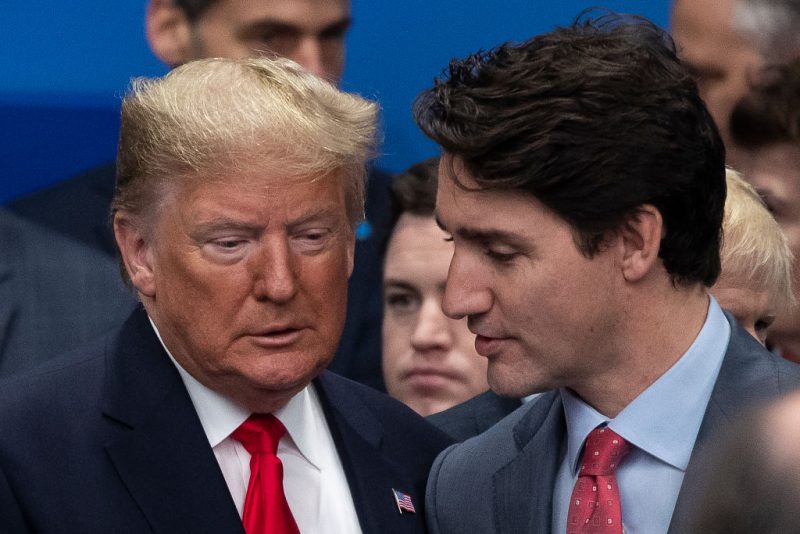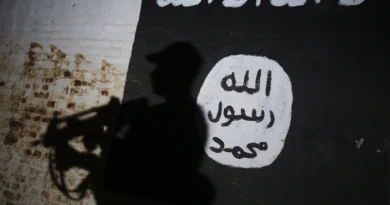Canada Halts U.S. Tariffs for 30 Days Following Trudeau’s Conversation with Trump – One America News Network

OAN Staff James Meyers
8:35 AM – Tuesday, February 4, 2025
President Donald Trump and Canadian Prime Minister Justin Trudeau have reached an agreement to temporarily suspend the imposition of 25% tariffs on each other’s imports for a period of 30 days while finalizing a border security pact.
Advertisement
Trump and Trudeau held two phone conversations on Monday before announcing the deal, where Canada committed to stationing 10,000 troops along the northern border, and the Prime Minister agreed to take measures against fentanyl smuggling.
“Canada has agreed to ensure we have a secure Northern Border, and to finally end the deadly scourge of drugs like Fentanyl that have been pouring into our Country,” Trump stated on Truth Social following his conversation with Trudeau. “Canada will implement their $1.3 Billion Border plan.”
“As President, it is my responsibility to ensure the safety of ALL Americans, and I am doing just that,” he added. “I am very pleased with this initial outcome.”
In a separate post on X, Trudeau revealed that Canada would proceed with its $1.3 billion border initiative first announced in December, shortly after Trump initiated threats of 25% tariffs that were scheduled to take effect at 12:01 a.m. Tuesday.
The initiative, Trudeau stated, encompasses “reinforcing the border with new choppers, technology, and personnel, enhanced coordination with our American partners, and increased resources to stop the flow of fentanyl. Nearly 10,000 frontline personnel are and will be working on protecting the border.”
“Additionally, Canada is making new commitments to appoint a Fentanyl Czar, we will designate cartels as terrorists, ensure constant surveillance on the border, and launch a Canada-U.S. Joint Strike Force to combat organized crime, fentanyl, and money laundering. I have also signed a new intelligence directive on organized crime and fentanyl, backed by $200 million.”
This latest development follows Trump and Mexico President Claudia Sheinbaum’s announcement earlier Monday of a similar halt on the impending 25% tariff against Mexico.
Mexico declared its intention to deploy 10,000 Mexican National Guardsmen to the U.S. border, asserting that the Trump administration would aid in curbing illegal weapons trafficking into its territory.
Shortly after Trump’s presidential victory, he threatened to impose tariffs on Canada and Mexico if they failed to comply with his demands regarding the crackdown on fentanyl trafficking and illegal immigration.
In response to the threats, Trudeau promptly traveled to Mar-a-Lago for a meeting with the then-incoming president to discuss these pressing matters.
In January, Trudeau announced plans to resign as the leader of Canada’s Liberal Party after a successor is selected in March, with elections scheduled for October.
Meanwhile, the proposed 25% tariff would significantly affect Canada, given that around 75% of its exports are directed to the U.S., while approximately 13% of U.S. exports go to Canada.
As reported by the U.S. Census Bureau, last year the U.S. imported about $377 billion worth of goods from Canada while exporting $322 billion.
Overall, the U.S. imports nearly $1.4 trillion from its top three trading partners: Canada, China, and Mexico annually.
The Tax Foundation projects that if all three tariffs were to take effect, the average household in the U.S. could face a tax increase of around $830.
Stay informed! Receive breaking news blasts directly to your inbox for free. Subscribe here. https://www.oann.com/alerts
Advertisements below


